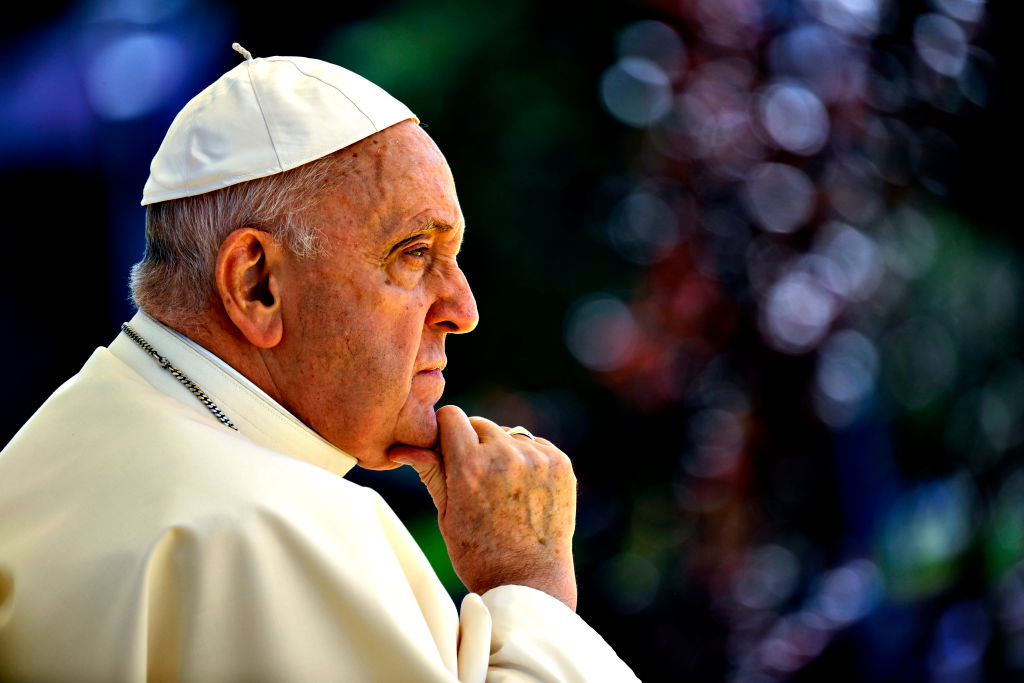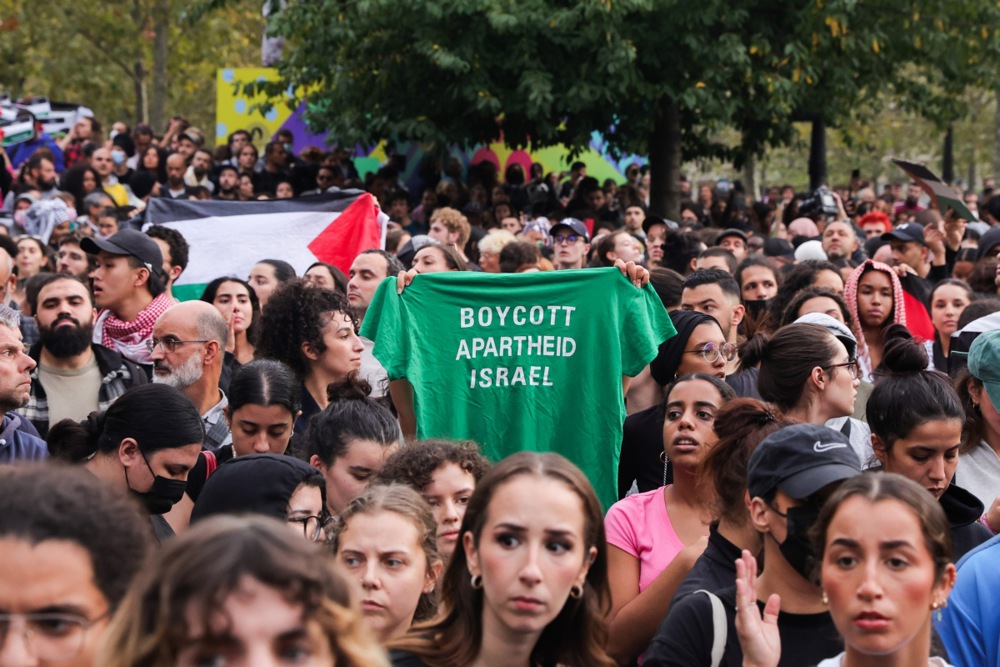Pope Francis is making the Church’s stand on surrogacy a central issue of his papacy. He made it the subject of his annual speech to the diplomatic corps accredited to the Holy See.
The Pope did not simply reiterate the teaching of the Church. Instead, he went so far as to officially request an international ban on the practice of surrogacy.
For the second time in two years, Pope Francis has taken a position regarding the rented womb. The topic has not been foreign to the debates within the Holy See for some time. If you search the archives, you discover that the issue had already been raised by the bishops at the Synod on the family in 2014.
The Pope’s position, however, is a step up, a signal that the issue of surrogate motherhood is not just one topic among many. Speaking about it to the diplomatic corps, the Pope gave the topic international weight.
Towards a new document
When discussing the Holy See, it is essential to understand the context in which the declarations occur. The Pope’s speech was part of a long-term diplomatic tradition.
Every year, on the first Monday after the Epiphany, the Pope meets the ambassadors and gives a speech that represents the diplomatic priorities of the Holy See for the coming year. The Holy See maintains diplomatic relations with 184 states worldwide, and the Pope’s speech is one of the few moments in which they are all together, considering that not all ambassadors are resident ambassadors to the Holy See.
In the speech, delivered on January 8, 2024, the Pope said:
“The path to peace calls for respect for life, for every human life, starting with the life of the unborn child in the mother’s womb, which cannot be suppressed or turned into an object of trafficking.
“In this regard, I deem deplorable the practice of so-called surrogate motherhood, which represents a grave violation of the dignity of the woman and the child, based on the exploitation of situations of the mother’s material needs. A child is always a gift and never the basis of a commercial contract. Consequently, I express my hope for an effort by the international community to prohibit this practice universally.”
Pope Francis has thus included the issue of surrogacy among the major international concerns of the Holy See.
He did so before an important conference to be held in Rome, on April 5/6, on the Casablanca Declaration, which aims to construct a legal instrument to prevent the practice of renting wombs.
Cardinal Victor Manuel Fernandez, prefect of the Dicatery for the Doctrine of the Faith, told EFE on January 12:
“We are preparing an essential document on human dignity which includes not only social issues but also a strong criticism of moral issues such as sex change, womb for rent, and gender ideology.”
In short, the Church has a strong and clear position on the issue of surrogate motherhood. And she will make it count in the international arena.
The dignity of the human person
The fact that Fernandez referred to the dignity of the human person is indicative of what the Holy See’s starting point is. The international agenda of the Holy See is the common good; the centre of everything is always the human person, with his inherent dignity.
The Holy See defends and promotes human rights, and it is no coincidence that – in the same speech – Pope Francis recalled the 75th anniversary of the Universal Charter of Human Rights.
However, the Holy See casts severe doubts on the validity of second and third-generation rights. These are rights that aim to establish some individual freedoms that do not have unanimous consensus.
For example, there is the fight against the poorly hidden right to abortion – France even aims to make it a constitutional right – and the fight against the inclusion of gender ideology in all documents, even when the documents do not directly concern the gender theme.
The no to surrogacy can become a powerful tool for the diplomacy of the Holy See. It says no to the throwaway culture, highlights the limitation of considering children not as a gift but as the fruit of a contract, and calls to the conscience of all men of goodwill.
It is not a Catholic appeal, but it is a political act of direction that gives a precise message on the centrality of the human being.
The reference texts of the Church
There will, therefore, be a document from the Dicastery for the Doctrine of the Faith that will touch on the issue.
Until now, the topic of surrogacy has been touched on somewhat sideways in two other documents. The first point of reference is Donum Vitae, a declaration of the Congregation for the Doctrine of the Faith which dates back to 1987.
There, it is underlined that “surrogate motherhood represents an objective failure in the face of the obligations of maternal love, marital fidelity, and responsible motherhood; it offends the dignity and right of the child to be conceived, carried in the womb, brought into the world and educated by his parents; it establishes, to the detriment of families, a division between the physical, psychological and moral elements that constitute them.”
Then, in 2008, the Congregation for the Doctrine of the Faith issued the Dignitatis Personae instruction. This document was such a milestone that Benedict XVI gifted a copy to US President Obama when he visited the Pope on July 10, 2009.
Receiving the copy, Obama was heard to say: “This is what we have talked about before…” It was a sign that Benedict XVI had also addressed the issue in private conversations between the two.
In Dignitatis Personae, in the paragraph concerning the possible uses of already developed and frozen embryos, we read that “the proposal that these embryos could be put at the disposal of infertile couples as a treatment for infertility is not ethically acceptable for the same reasons which make artificial heterologous procreation illicit as well as any form of surrogate motherhood; this practice would also lead to other problems of a medical, psychological and legal nature.”
It is with Pope Francis, however, that surrogacy forcefully entered the debate.
On June 10, 2022, Pope Francis met with members of the Federation of Catholic Family Associations in Europe. And there, in a passage, he said that “the dignity of men and women is also threatened by the inhuman and increasingly widespread practice of the ‘rented uterus,’ in which women, almost always poor women, are exploited and children treated as commodities.”
This month’s speech is a further step because it connects the theme of the defence of life to peace.
Now, we can assume, or hope, that the Holy See will continue to speak out on the topic, in international forums, developing a critical conscience, and finding a common front alongside associations of different backgrounds (such as feminist groups) that aim for an international ban of the womb for rent.
In April, Rome will be the centre of a particularly lively debate. The Holy See, we can be sure, will participate in the discussion, aware that this will be a major theme of the future.





Constructive diplomacy? The Vatican’s close engagement with Iran could have far-reaching consequences